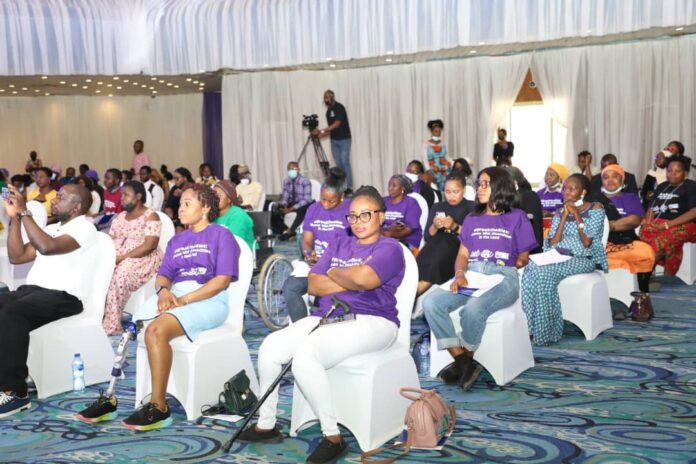By Chioma Obinna
As Nigeria joined the World to mark this year’s International Women’s Day with the theme: “Gender equality today for a sustainable tomorrow”, women living with disabilities have called for appropriate policies that will encourage and support them to express their reproductive rights.
Making the call in Lagos at a media roundtable organised by Hope Inspired Foundation for Women and Children to mark the day in Lagos, they expressed worry that while it is difficult to function as a woman in Nigeria, the challenges double for women with disabilities.
Expressing her views, the Programme Manager for Hope Inspired Foundation for Women and Children, Mrs Omolara Daniel said oftentimes, the reproductive rights of women with disabilities are trampled without recourse, making it impossible for them to exercise their human and reproductive rights.
She said women with disabilities are being discriminated against both in the homes and are not given equal opportunities in the workplace.
“As a woman, it is not easy to function in a male-dominated country like ours. Women are often relegated to the background. People feel that men should rule the world. And having a disability doubles your problem. This is why we feel that the government should protect people with disabilities.
“Today, as disabled women, we are like a minority in the minority. It is also more difficult where people feel that you don’t even have a place in the homes. You cannot even function in your home because you are disabled. You cannot express your rights in the home. People feel that a woman with a disability should not be married, should not be pregnant because if you are pregnant you will have a child with a disability which is a wrong notion. A lot of us have kids and they are doing well.”
Continuing, she said gender-based violence is more prominent among women with disabilities.
“We are subjected to violence in the home either by our husbands or family members and I feel it is time we give everybody equal chance because you will not know about me if you do not give me a chance to express myself both in human right and reproductive or sexual rights. Allow me to express it and don’t assume that I am a woman with disabilities then I cannot do certain things.”
Speaking on 2023 elections, Daniel urged Nigerian women to come out enmasse and take up positions, stressing that it is only when they come out that the gender – equality project would be achieved.
“The election is coming and everybody has a role to play t does not matter whether you are a woman or a man. If we must change Nigeria everybody must contribute to the social-economic growth of the country.
And I feel that women in general who feel that they have the expertise to contribute should come out and express their political rights. They should not allow themselves to be laid off or stopped by the men. If we continue to let them, the fight for gender equality will be fruitless.
Speaking, Mr. Ayo Efunkoya, a journalist and a member of Hope Foundation who identified some of the challenges of women with disabilities including; sexual rights said the society often believe that persons with disability are not supposed to be sexually active and even when the women get pregnant, they are stigmatised by the medical practitioners.
“These women are also faced with unemployment and poverty.”
He called on the Federal government to prioritise the development and engagement of women with disabilities as the ear for stipends and hand-outs are long gone.
“If a woman without disabilities can work, contribute to the society and uplift herself and family so also should a woman with disabilities.
“If women are seeking greater representation in the national assembly, and state assemblies, they have not also thought about women with disabilities whose experience is not shared with women without disabilities. How do you represent and engage them and carry them along to ensure that their voices are heard and carried along? These are some of the issues, the government should begin to address.” Vanguard


